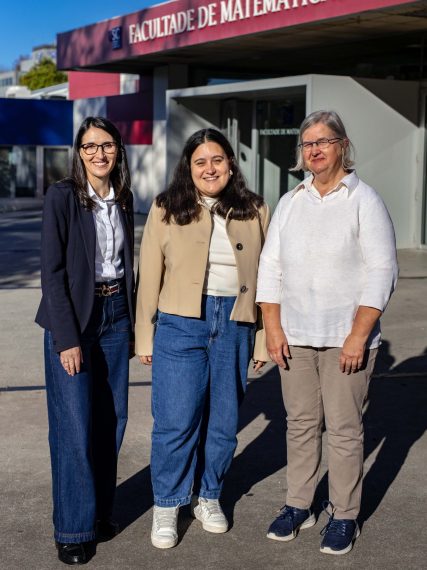
María Alonso Pena, Irène Gijbels and Rosa Crujeiras Casais
SPANISH SOCIETY OF STATISTICS AND OPERATIONS RESEARCH (SEIO)-BBVA FOUNDATION AWARDS
Best methodological contribution in the statistics field
2024
For their paper "A general framework for circular local likelihood regression," published in the Journal of the American Statistical Association (JASA), which the committee described as "a significant advancement in the field of directional statistics."
CONTRIBUTION
When studying how pollutants behave as a function of wind direction, we must first establish the angle at which the wind is blowing, just as when analyzing neural response to visual stimuli, it is vital to know the direction they come from. By the same token, the flight strategy of prey will vary according to the angle from which a predator is approaching. In all these contexts, directionality is a key input to statistical analysis, but existing techniques had a series of shortcomings that ruled out their direct application.
To address this problem, María Alonso Pena, Assistant Professor of Statistics and Operations Research at the University of Santiago de Compostela (USC); Irène Gijbels, Professor of Statistics at KU Leuven (Belgium); and Rosa Crujeiras, Professor of Statistics and Operations Research at USC, have proposed a more general method to analyze directional data; a method they have grounded in theory while also validating its use by testing its performance in diverse simulation scenarios.
The results were published in the paper “A general framework for circular local likelihood regression,” appearing in the Journal of the American Statistical Association (JASA). The method they devised can be applied in such varied realms as biology, neuroscience and the environment. For the researchers, it has also meant the opportunity to revise some mistaken conclusions persisting in the literature in the absence of suitable techniques.
Crujeiras sees the search for new statistical tools as more crucial than ever given the multiple formats in which data are collected: not just numbers, but also images, videos or genetic profiles. “We gather a vast amount of information, but are we capable of managing it?” she asks. “The job of all of us working in statistics and operations research is to help transform these data into information that lets us make better decisions.”
The awardee researcher is convinced that society needs basic statistical skills if we are to develop a critical mindset and steer clear of fake news. As citizens, she argues, “we have to grasp the importance of interpreting data and be aware of how misinterpretation can impact our lives, and the decisions that governments make about our futures. Statistics is not a back-up player,” she insists, “but a discipline that should be at the forefront of our lives.”
